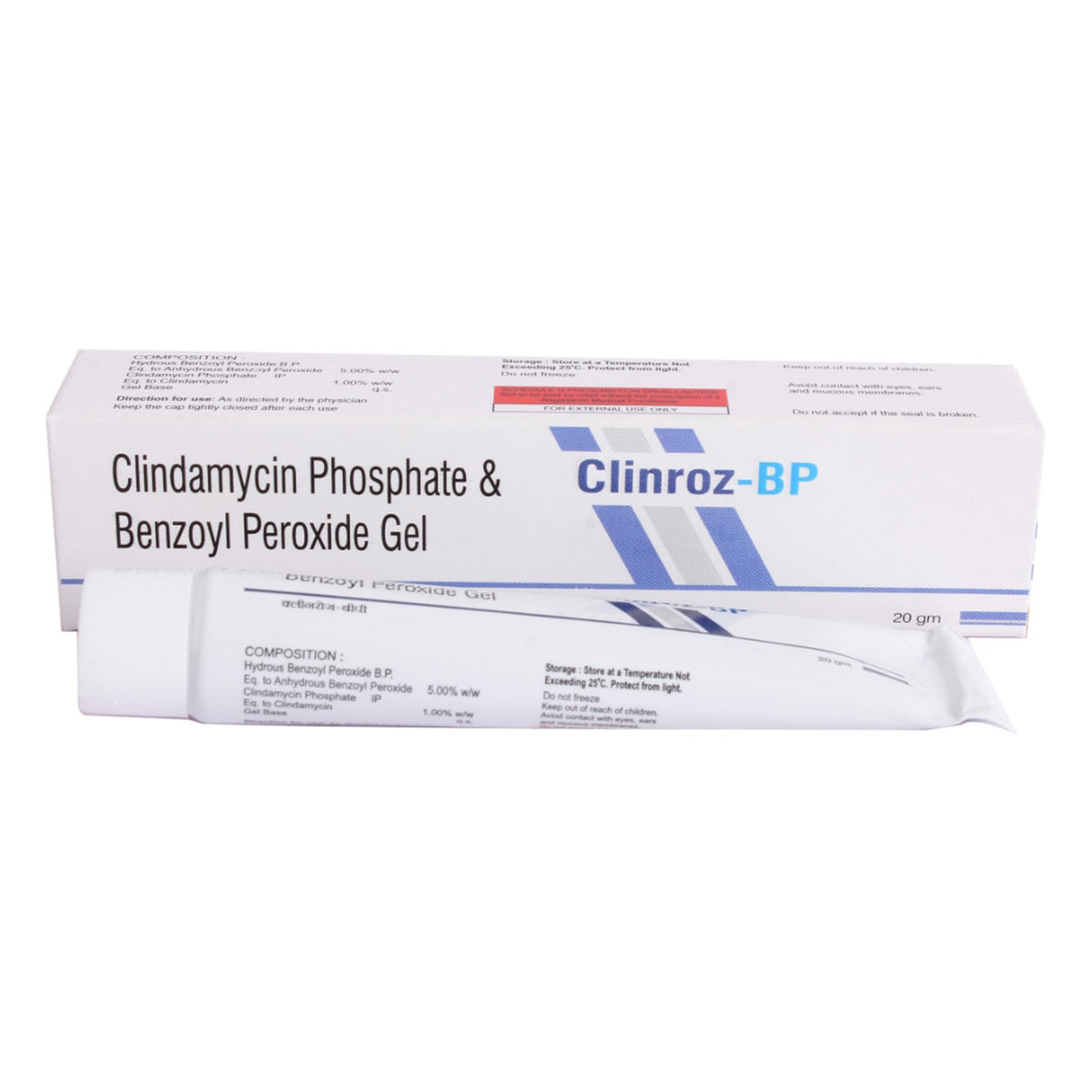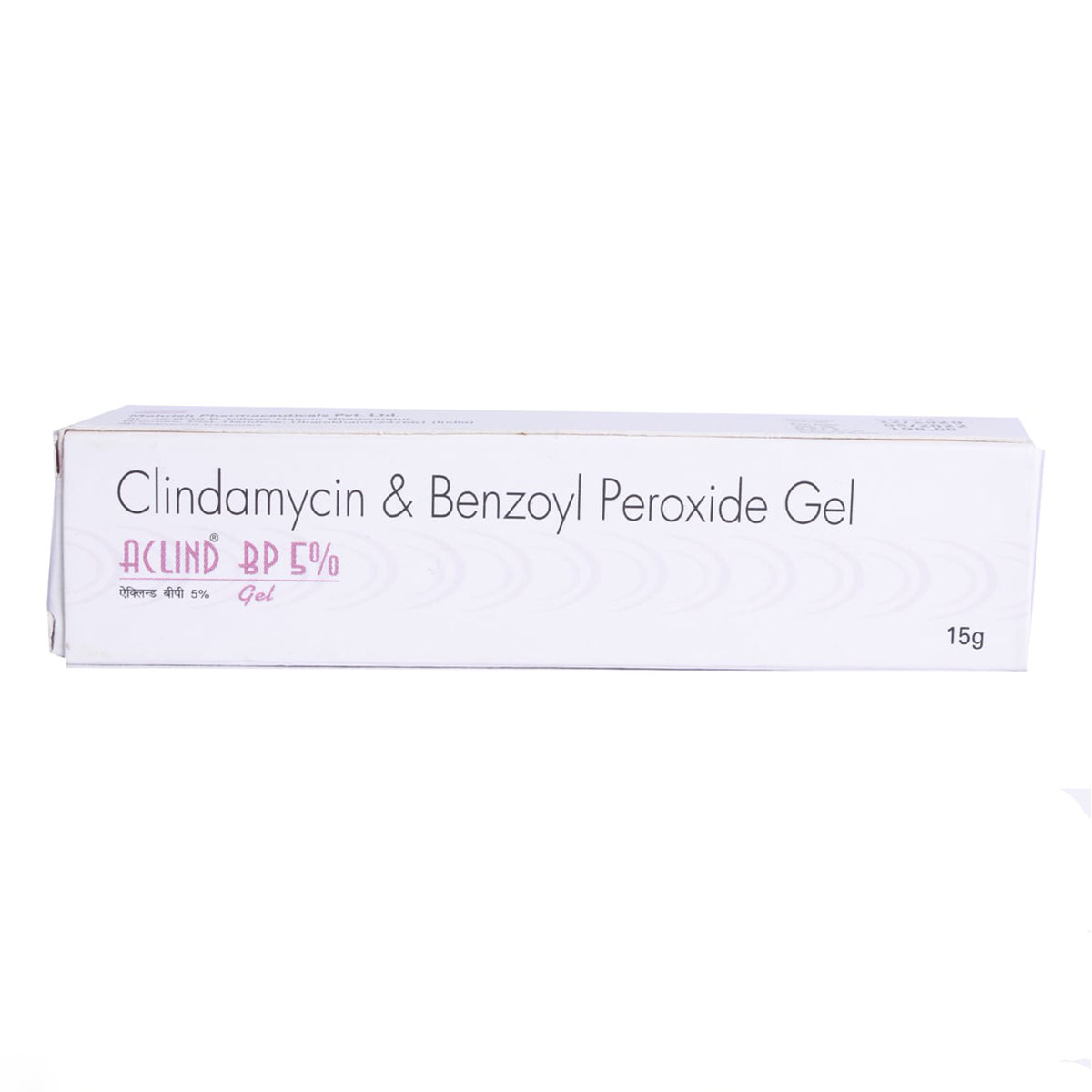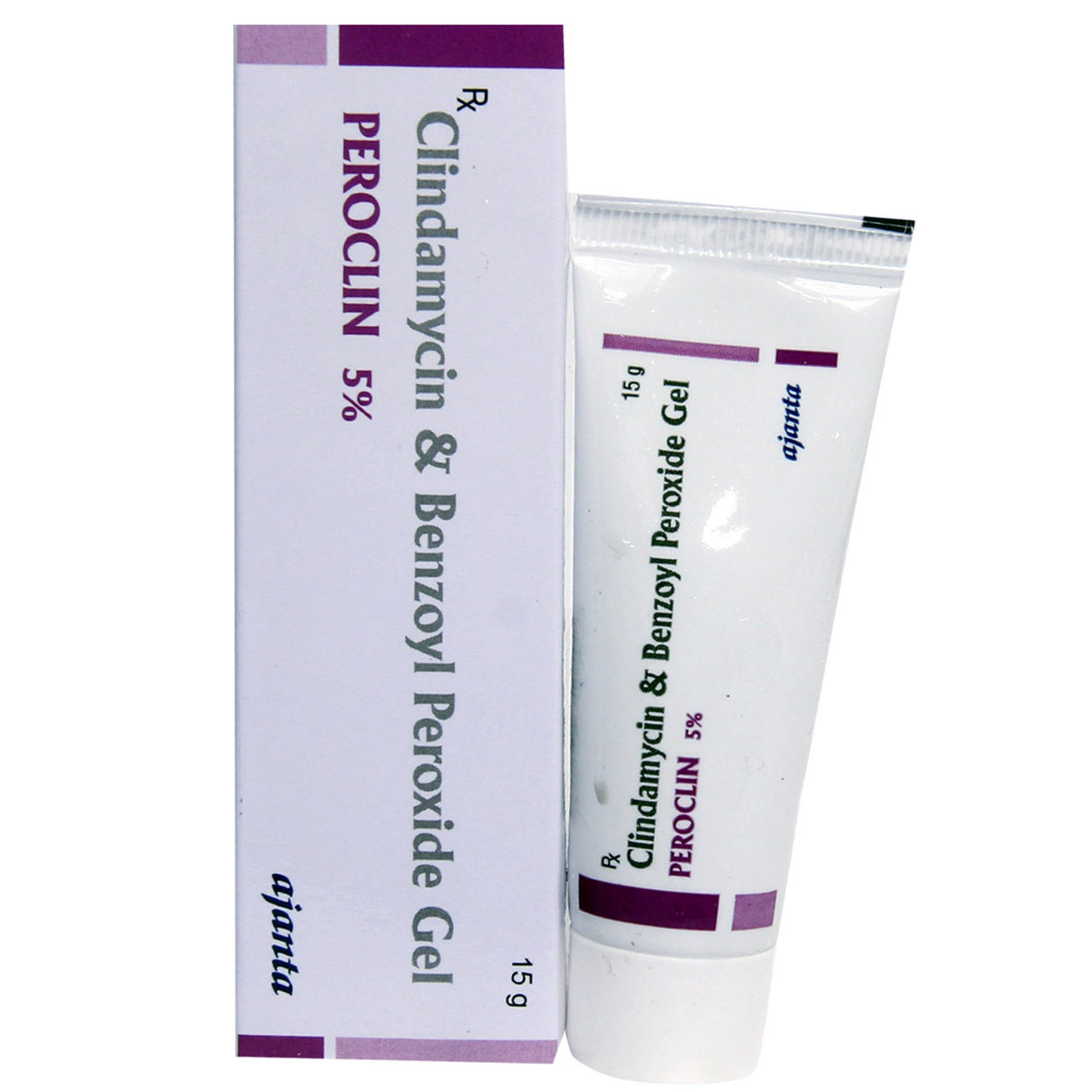- Home
- Clindoxyl Gel
Clindoxyl Gel Substitute
Clindoxyl Gel Substitute
Medicine Composition:
BENZOYL PEROXIDE-5%W/W+CLINDAMYCIN-1%W/WAll Substitutes & Brand Comparisons
RX
Acnegel-B Gel 30 gm
West Coast Pharmaceuticals Pvt Ltd
₹182
(₹5.46 per unit)
81% CHEAPERRX
Out of StockAlesa Gel
Integrace Pvt Ltd
₹11.16
(₹10.04/ 1gm)
66% CHEAPERRX
Clinroz-BP Gel 20 gm
Rockmed Pharma Pvt Ltd
₹314
(₹14.13/ 1gm)
52% CHEAPERRX
Aclind BP 5% Gel 15 gm
Mohrish Pharmaceuticals Pvt Ltd
₹242.5
(₹14.55/ 1gm)
50% CHEAPERRX
Peroclin 5% Gel 15 gm
Ajanta Pharma Ltd
₹537
(₹32.22/ 1gm)
8% COSTLIERRX
Out of StockClindoxyl Gel 10 gm
GlaxoSmithKline Pharmaceuticals Ltd
₹400
(₹36.0/ 1gm)
21% COSTLIER

When Should You Consider Switching from Clindoxyl Gel?
Patients may explore substitutes in the following scenarios:
- High monthly cost of Clindoxyl Gel
- Non-availability in local pharmacies
- Generic recommendation by a doctor
- Side effects or better tolerability with alternatives
What to Know Before Switching
Before you switch from Clindoxyl Gel to another medicine, here are some important points to keep in mind:
Same salt, different brands:
Most substitutes contain the same active ingredient - BENZOYL PEROXIDE-5%W/W+CLINDAMYCIN-1%W/W, but the fillers, coating, or manufacturing quality may vary slightly.
Consult your doctor first:
Even if the salt is the same, your doctor can confirm if the substitute is right for your condition, dosage, and health history.
Watch out for allergies or reactions:
Some people may react differently to certain brands due to inactive ingredients. If you notice any side effects, inform your doctor immediately.
Price ≠ effectiveness:
A lower-priced substitute doesn't mean it's less effective. Many generic medicines work just as well as branded ones.
Check the dosage form and strength:
Always match the substitute’s strength (e.g., 5mg, 10mg) and form (tablet, capsule, syrup) with what your doctor prescribed.
Uses
Medicinal Benefits
Clindoxyl Gel is a combination of two drugs: Clindamycin and Benzoyl peroxide used to treat acne (pimples). Clindamycin is a broad-spectrum antibiotic that acts against both aerobic (grow in the presence of oxygen) and anaerobic (grow in the absence of oxygen) gram-negative and gram-positive bacteria. The acne-causing bacteria feeds on sebum produced by sebaceous (oil) glands in the skin and produce fatty acids and waste products that irritate oil glands, causing redness and swelling. Clindamycin inhibits the production of essential proteins necessary for bacteria to grow, multiply and increase in numbers. Thereby, stops or slows down the growth of bacteria and clears acne. Benzoyl peroxide is a keratolytic agent that breaks down a protein known as keratin (that forms part of skin structure) and removes dead skin cells and softens skin. Thereby, helps in reducing blackheads and whiteheads. Additionally, Benzoyl peroxide possesses antibacterial properties and kills bacteria that causes acne and reduces inflamed acne spots.
FAQs
The substitutes of Clindoxyl Gel contain the same active salt(s) - BENZOYL PEROXIDE-5%W/W+CLINDAMYCIN-1%W/W. However, they may differ in price, manufacturing quality, and inactive ingredients. Speak to your doctor to find a suitable option.
Switching to a generic substitute medicine in the place of Clindoxyl Gel is often possible if it has the same salt, strength, and dosage form. But always check with your doctor before making any changes to your medication.
Generics versions of Clindoxyl Gel are typically more affordable because they don’t include the original brand's research, development, and marketing costs. They contain the same active ingredient and are approved for safety and effectiveness.
Most people don’t notice any difference. However, some may react to different fillers or coatings. If you notice any unusual symptoms after switching, consult your doctor.
Make sure the new medicine has the same active salt, strength, dosage form. Always confirm the change with your doctor or pharmacist.
Substitutes of Clindoxyl Gel meet the same safety and efficacy standards as Clindoxyl Gel, but small differences in absorption or formulation can exist. A doctor can help you choose the right one for your needs.
Yes. Substitutes of Clindoxyl Gel may vary in color, size, or shape due to differences in manufacturing and branding, but this does not affect how they work.
Yes, it’s generally safe to switch between multiple substitutes of Clindoxyl Gel if they have the same salt and strength. However, always inform your doctor so they can monitor how your body responds.
Yes, many people safely use substitutes of Clindoxyl Gel for long-term treatment. Just ensure it’s done under medical supervision.
If your symptoms stay under control or lab results remain stable, the substitute for Clindoxyl Gel is likely working well. Regular follow-ups with your doctor are important.
Absolutely. Even with the same salt, small differences can affect how your body responds when switching from Clindoxyl Gel to its substitute. Always consult your doctor before switching.
Buy best Personal Care products by
FACE CARE
BODY CARE
SHAMPOOS
PERSONAL HYGIENE
TOOTH PASTE & POWDER
HAIR OILS
SEXUAL WELLNESS
SHAVING & HAIR REMOVAL
HAND & FEET CARE
BODY SPRAY & DEODORANTS
TOOTH BRUSH & ACCESSORIES
HAIR COLOURS
HAIR SERUMS
CONDITIONERS
LIP CARE
PERFUME & FRAGRANCES
BEAUTY & COSMETICS
PERFORMANCE ENHANCERS & ACCESSORIES
MOUTH WASH
INTIMATE CARE
HAIR WAX & GELS
HAIR LOTIONS & TONICS
HAIR MASKS
EYE CARE
ROLL ON & DEO STICS
MOUTH & BREATH FRESHNERS
TOOLS & ACCESSORIES
HAIR SPRAYS
BEARD CARE
MEDICATED ORAL CARE
ANTIPRURITIC & SOOTHING PREPARATIONS
Hindustan Unilever Ltd
Procter & Gamble Hygiene And Health Care Ltd
Loreal India Pvt Ltd
The Himalaya Drug Company
Apollo Healthco Limited
Reckitt Benckiser India Ltd
Marico Ltd
Colgate-Palmolive (India) Ltd
Nivea India Pvt Ltd
Godrej Consumer Products Ltd
Johnson & Johnson Pvt Ltd
Fixderma India Pvt Ltd
Dabur India Ltd
Glenmark Pharmaceuticals Ltd
Honasa Consumer Pvt Ltd
Bio Veda Action Research Company
Emami Ltd
Vlcc Health Care Ltd
Abbott India Ltd
Mankind Pharma Pvt Ltd
Dr Organic Ltd
Felisha Cosmetics Pvt Ltd
TTK Healthcare Ltd
Galderma India Pvt Ltd
Piramal Enterprises Ltd
Syscom Organic World Pvt Ltd
Cavincare Pvt Ltd
Torrent Pharmaceuticals Ltd
Lotus Herbals Ltd
USV Pvt Ltd
Pep Technologies Pvt Ltd
Itc Ltd
Zydus Healthcare Ltd
Ajanta Pharma Ltd
Dr Reddy's Laboratories Ltd
Wipro Consumer Care
GlaxoSmithKline Consumer Healthcare Ltd
Unicharm India Pvt Ltd
Uprising Science Private Limited
Klm Laboratories Pvt Ltd
Hll Lifecare Ltd
Patanjali Ayurved Limited
Visage Lines Personal Care Pvt Ltd
West Coast Pharmaceuticals Pvt Ltd
White Square
Cipla Health Ltd
Manash Lifestyle Pvt Ltd
RAY IMPEX
Redcliffe Hygiene Pvt Ltd
Sirona Hygiene Pvt Ltd
Nobel Hygiene Pvt Ltd
Sunbeam Mercantile Ventures Pvt Ltd
A. Menarini India Pvt Ltd
Fsn E-Commerce Ventures Pvt Ltd
Palsons Derma Pvt Ltd
Pureplay Skin Sciences (India) Pvt Ltd
Sun Pharmaceutical Industries Ltd
Hegde & Hegde Pharmaceutica Llp
Kai Manufacturing India Pvt Ltd
Alkem Laboratories Ltd
Amwill Healthcare Pvt Ltd
Believe Cosmetics Pvt. Ltd.
Vini Cosmetics Pvt Ltd
Bioderma Laboratories
Icpa Health Products Ltd
Petrol Perfume
Bajaj Consumer Care Ltd
Body Cupid Pvt Ltd
Indoco Remedies Ltd
Ipca Laboratories Ltd
Ethicare Remedies Pvt Ltd
Apple Therapeutics Pvt Ltd
Colorbar Cosmetics Pvt. Ltd
Leeford Healthcare Ltd
Brinton Pharmaceuticals Ltd
Cholayil Pvt Ltd
Khadi Pure Garmodyog
Med Manor Organics Pvt Ltd
RADICO
Vicco Laboratories
Adonis Laboratories Pvt Ltd
Intas Pharmaceuticals Ltd
Kynx International Pvt Ltd
Mark Cosmed India Pvt Ltd
Sri Veda Sattva Pvt Ltd
INDUS COSMECEUTICALS PVT. LTD
Leeford Health Care Ltd
Naos Skincare India Pvt Ltd
Vlado Sky Enterprise Pvt Ltd
Zed Lifestyle Pvt Ltd
Gokul Cosmetics
Helios Lifestyle Pvt Ltd
Midascare Pharmaceuticals Pvt Ltd
Remember India Medicos Pvt Ltd
Riddhi Sidhi Enterprises
Zywie Ventures Pvt Ltd
Ayur Herbals
Baksons Drugs And Pharmaceuticals Pvt. Ltd
Ceuticoz
Chipper Consumer Pvt Ltd
Face Wash
Soap
Face Cream
Tooth Paste
Shampoo
Sun Screen
Body Lotion
Condoms
Body Wash
Face Serum
Sanitary Napkin
Moisturiser
Hair Oil
Face Gel
HERBAL HAIR OIL
Deodorant
HERBAL SHAMPOO
Tooth Brush
Hair Serum
FACE CLEANSER
ADULT DIAPER
MEDICATED SHAMPOO
Hair Color
Conditioner
Lip Balm
Hand Wash
Talcum Powder
Razor
Perfume
Sanitizer
Mouth Wash
Body Spray
Face Scrub
BODY CREAM
Massage Oil
Intimate Wash
Hair Removal Cream
Lubricant Gel
Sheet Mask
Essential Oil
CARTRIDGE
ANTISEPTIC
Period Panty
Face Pack
Face Mask
Foot Cream
Face Toner
Hair Mask
Hair Gel
Hair Lotion
Face Lotion
Hair Cream
Dusting Powder
Menstrual Cup
FACIAL WIPE
HERBAL HAIR COLOR
Panty Liner
Shaving Cream
Body Scrub
Eye Cream
Kajal
Rose Water
Micellar Water
Shaving Foam
Peel off mask
ROLL-ON
BODY GEL
Vibe Ring
Face Bleach
Facial Kit
HAIR SOLUTION
Body Butter
Hair Care Powder
After shave lotion
Cold Cream
ELECTRIC TOOTHBRUSH
FRAGRANCE MIST
Hair Spray
Lubricant Spray
MOUTH FRESHNER
Petroleum Jelly
Stretch Mark Cream
Tongue Cleaner
Eye Serum
Glycerin
BB Cream
Skin Lotion
TOOLS & ACCESSORIES
Tooth Powder
WAX STRIP
DENTAL FLOSS
Hand Cream
Tampon
Beard Oil
Eye Gel
HERBAL CONDITIONER
INTIMATE WIPE
Nail Polish Remover
Shaving Gel
Adult Nail Clipper






